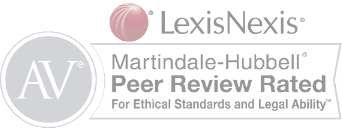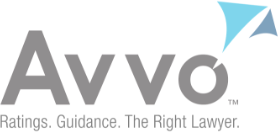California’s Ban on Salary History Inquiries: The Impact to Hiring Practices


If your organization is retooling its hiring playbook—or if you suspect a recruiter crossed the line—speak with a skilled San Diego employment lawyer at 619-807-5299. John P. Martin, Attorney at Law stands ready to help you turn the new rules into a competitive edge.
Here are the top impacts California’s salary-history ban is already having on hiring practices—and why they matter for employers and applicants alike.
Transparent Pay Ranges Reshape Compensation Strategy
California’s pay-scale mandate forces companies to attach real numbers to every vacancy, eliminating the secrecy that once let managers tailor offers to a candidate’s past earnings. Applicants arrive already knowing the range and benchmarking it against market data, so negotiation starts on firmer ground—and often ends faster.
Finance teams must draft budgets around published bands, because any later “adjustment” below the floor may trigger claims of wage misrepresentation. HR departments now rely on formal compensation matrices that grade roles by duties, experience, and certifications instead of legacy pay.
The shift boosts internal equity, reducing morale issues that erupt when coworkers discover disparate rates for similar tasks. Candidates who need more than the posted ceiling remove themselves early, cutting time-to-hire. Companies with multi-state footprints adopt California-style transparency nationwide rather than juggle dual systems.
Boards discuss pay-equity metrics at quarterly meetings, because shareholders can see the same ranges as applicants. Even small businesses find that public bands deter “ghosting”: applicants feel the process is fair and stick with it. For workers re-entering after caregiving gaps, a visible scale removes the fear that a low prior salary will haunt future negotiations. Job-board algorithms now prioritize posts that list pay, making opaque ads harder to find. In short, open ranges create both a compliance shield and a hiring advantage.
Interview and Application Protocols Undergo a Complete Overhaul
The ban affects more than the job ad—it touches every step from first screen to offer letter. Key updates include:
- No salary boxes. Online applications delete any field asking for “current compensation.”
- Filtered résumés. Applicant-tracking software hides unsolicited pay data so hiring managers never see it.
- Skill-based questions only. Recruiters focus on achievements—“Tell us how you led a ten-person team”—not pay.
- Standard offers. Before HR clicks “send,” managers must list objective reasons—experience, licenses, location—for the proposed rate.
- Third-party compliance. Outside head-hunters sign contracts promising not to pass on salary history.
- Clear notices. New-hire packets give a one-page summary of Labor Code § 432.3 in English and Spanish.
Remote screeners outside California also follow these rules because jurisdiction follows the applicant. Internal transfers get the same treatment to avoid mixed messages. Compliance audits now include random interview recordings; any pay questions trigger retraining.
Momentum Toward Pay Equity and Narrowed Wage Gaps
Severing the link between prior pay and new offers cuts a feedback loop that once embedded gender, race, and age discrimination in California into every wage decision. Candidates who paused careers for caregiving or military service no longer carry a permanent discount tag. Early academic studies show the first-offer pay gap between men and women in California technology firms narrowing since 2019.
Forward-looking employers tie executive bonuses to internal parity metrics now easier to calculate with clean data. Transparent ranges empower employees to discuss compensation openly, surfacing gaps sooner and reducing attrition. Ultimately, disconnecting pay from personal history aligns compensation with market value and actual performance—goals employment lawyer in San Diego urges employers to embrace.
Heightened Compliance and Litigation Stakes for Employers
Civil penalties for asking about salary history run from $100 to $10,000, but lawsuits pose the real risk. Plaintiffs link prior-pay questions to sex or race bias under the Equal Pay Act and FEHA. Class counsel scour old applications for a single checkbox marked “desired salary” to revive claims stretching back four years.
Other pressure points:
- Government audits. Agencies compare posted ranges with actual start rates; unexplained gaps invite scrutiny.
- Insurance premiums. Carriers now ask if you follow § 432.3 before issuing employment-practices policies.
- Board oversight. Directors demand quarterly pay-equity dashboards, elevating the issue alongside data privacy.
- Reputation risk. Social media shames brands accused of underpaying women or minorities, denting sales and share price.
- Whistle-blower shield. Firing an employee who flags illegal pay questions can spark a powerful retaliation claim.
Early mediation led by John P. Martin, Attorney at Law—trusted employment lawyer in San Diego, California—whether an employer can prove it never saw an applicant’s salary history. Robust records and recruiter contracts make that defense possible.
Take that One Step Toward Fair Pay
Transparent ranges, re-engineered interviews, measurable equity gains, and stricter compliance all flow from California’s salary-history ban, and employers unprepared for these impacts risk steep penalties and reputational harm. John P. Martin, Attorney at Law—trusted among San Diego employment lawyers for his meticulous, client-first approach—helps companies craft policies, train teams, and defend wage-gap claims with confidence. For strategic guidance tailored to your workforce, contact us today or call 619-807-5299 before your next offer goes out.





